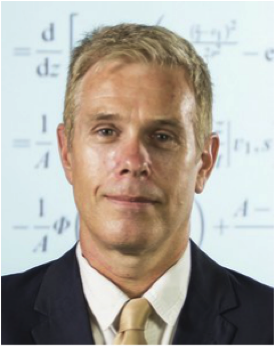
Chair: Professor Brigid Heywood, Deputy Vice-Chancellor (Research), UTas
Understanding how humans make decisions with Professor Andrew Heathcote, UTAS
What constitutes evidence, what should we believe, and what should we do, given we only have knowledge that is partial and uncertain? Although probability theory is usually associated with uncertainty in games of chance, it is less well known that using probability as a measure of uncertainty that quantifies the credibility of different outcomes or events provides an effective way to cope with an uncertain world. Andrew will provide an overview of the way University of Tasmania students are being taught to use uncertain evidence to both come to credible beliefs and to take reasonable actions, using examples and reasoning that are familiar and relevant to decisions in everyday life, such as whether a particular patient is sick, or a particular defendant guilty.
Science at the environmental policy interface with Professor Marcus Haward, UTAS
There is broad agreement between spheres of science, management, politics and business that good evidence and analysis should be central to addressing complex environmental problems. There is less agreement on how this should be achieved. There are substantial barriers, mostly imposed by time and human capacity, to incorporating even the most appropriate and well-targeted science into policy development, planning and management decisions. There are also science ‘supply-side’ constraints in targeting the specific or very broad problems decision-makers face, including recognising differing interests and organizational goals. A major challenge in addressing the ‘science-policy gap’ – the level of confidence over a scientific finding between the scientific community and by society – is simultaneously managing stakeholder relevance, institutional legitimacy and the methodological rigor of knowledge production. This presentation explores the nature of problem structuring as a key to boundary work between science and decision-making. It then considers boundary work as processes, institutions and objects that first mediate how good science is defined and second how this science can inform policy processes and decision-making.
MORE INFORMATION
